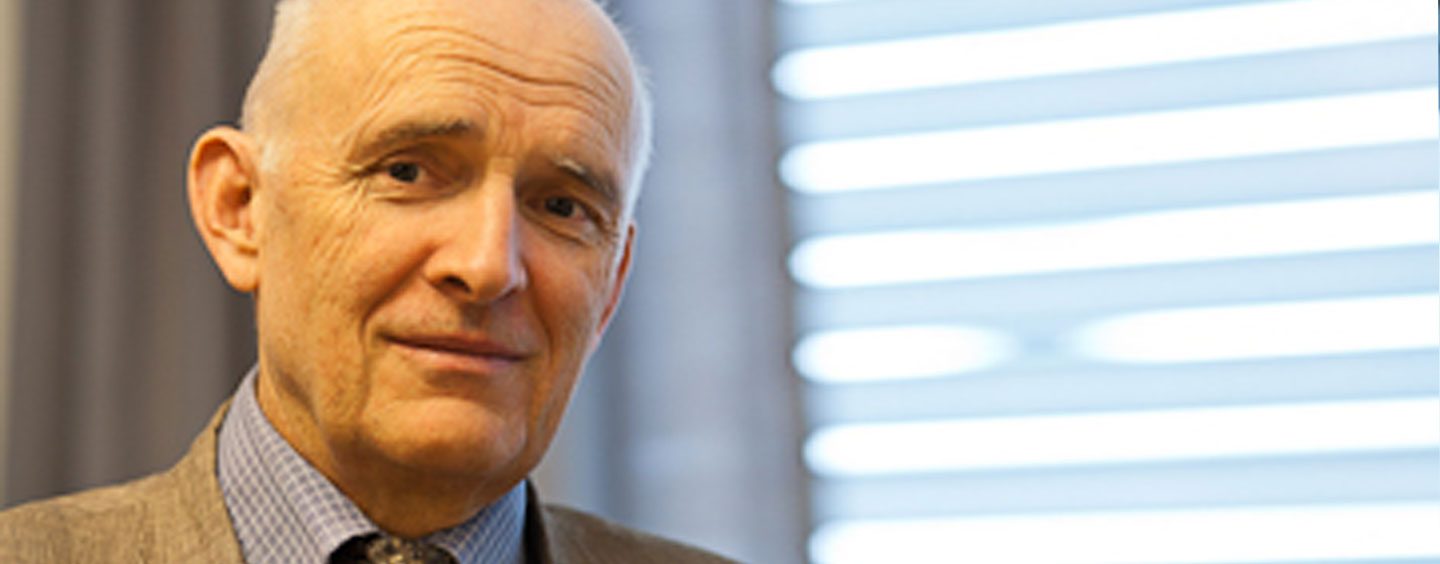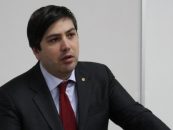
I think Both Azerbaijan and Norway are Well Placed to Adapt and Benefit from these New Realities
An interview with Mr. Torleif Haugland, Managing Director, Carbon Limits.
AT: When was Carbon Limits of Norway established? Please, give broad information on its multi-ramified activities to our readers.
Carbon Limits was established in 2005 and has since then had a main focus on energy efficiency improvements and emission reductions in the oil and gas sector.
I had cooperated with Arve Johnsen, the first President of Statoil and now the Chairman of Carbon Limits, on global flaring reductions and we were involved in forming of the Global Gas Flaring Reduction public private partnership (GGFR) in 2001-2002. From this came the idea to start assisting companies in improving gas utilization and energy efficiency, initially with much focus on the use of carbon credit mechanisms of the Kyoto Protocol. We have since diversified our activities and now work more broadly on emission reductions and efficiency improvements. Our geo-graphical focus is Russia and the Caspian region, but we are also active in the Middle East and in West Africa, and of course on our home turf the North Sea.
AT: Your company is active on the market in the sphere of energy efficiency. In Azerbaijan, this sphere is only taking its first steps. For this reason, it would be very useful for the readers of our magazine, especially for countries rich in natural reserves, to learn about the advantages of this sphere?
Let me answer this by making reference to some key features which your country Azerbaijan and my country Norway have in common; both have petroleum dependent economies. Oil and gas account for 90% of export revenues in Azerbaijan, while the number for Norway is 50%. Both countries fore see an increase in the role of gas exports and hence will be dependent on developments in the European gas market. At the same time, we should recognize that international climate policies will have a radical impact on energy markets and therefore on commercial conditions for our energy corporation. These changes, which first will be felt in Europe, make energy exporters like Azerbaijan and Norway vulnerable, but it is my view that those countries and energy corporation that rise to this challenge will succeed and thrive.
I think both Azerbaijan and Norway are well placed to adapt and benefit from these new realities. The challenges are well known and recognized among key decision makers, and active steps are being taken. I have been impressed with the attention emission reductions and energy efficiency received at senior management and operational levels within SOCAR, and not only as stated intentions, but through practical steps being taken. Carbon Limits has had a very good dialogue and cooperation with SOCAR specifically related to emission of methane from oil and gas installation. This is an issue of increased attention internationally and it is very encouraging to observe the determination with which SOCAR addresses the issue. Working proactively on measures to reduce the “carbon footprint” of the oil and gas industry is clearly an area with great potential for cooperation between Azerbaijan and Nor-way. We have a common understanding of the importance of the issues, and the already broad cooperation that exists represents the necessary trust and “institutional match”. Both for Azerbaijan and Norway it is vital to market natural gas as a clean energy source which offers “a bridge to a sustainable energy sector”. However, for this to be credible we must be able to document that our natural gas supplies are not only a clean fuel at its end use, but also that it is brought to the consumer with the lowest possible “carbon footprint”, meaning that ever’ effort is made to minimize energy use and losses along the entire gas value chain. I would also stress that many of the energy efficiency measures (for example methane emission reductions) are already economic today, and will increasingly be so as technologies and operational practices advance.
AT: Azerbaijan, specifically the State Oil Company of Azerbaijan, has under taken to stop the torch burning of accompanying gas at its deposits completely, thus making a great contribution to the cause of reducing greenhouse gases. What is the situation in the Caspian basis as a whole since your company has some experience in this region?
It is interesting and very encouraging to see how much more attention gas flaring has attained as a resource waste and an environmental problem as compared to 10 to 15 years ago. Companies are acting proactively and policy makers and regulators are setting ambitious targets. In Azerbaijan this has led to impressive results in flare reduction. Kazakhstan has also taken active steps in flare reduction onshore and offshore. Haring in this region has been cut in half since 2008. My understanding is that investments are also underway in Turkmenistan to gather and bring to market previously flared gas off shore in the Caspian Sea and on some onshore fields.
Still it is important to remind ourselves that the flaring problem is not only about shutting down existing flares, but it is also about focusing on flare avoidance from new fields. In many countries new oil production capacities are built in locations with poor outlets for the associated gas and major efforts both technologically and financially are often required to avoid the flaring. 1 think the recent developments related to new shale oil production in the US illustrate this. Flaring has increased from 2.4 billion cubic meters (bcm) in 2008 to 7.1 bcm in 2011, and it has been reported that North Dakota, where a major part of the new production takes place, has had a further 50% increase of flaring from 2011 to 2012.
AT: There are purely psychological aspects, for example, for residents of countries that are rich in natural reserves – the use energy efficient technologies or simply the appearance of such elements seems “too expensive a pleasure”. How do you think it is necessary to change the existing traditions in order to achieve an eco-friendly way of life and of course, to ensure effective use of existing natural reserves?
The perception of energy efficiency being a “luxury” or something unnecessary for a resource rich economy is fundamentally wrong. First, by saving energy we can sell more and hence have more revenues to buy other things we need, rather than wasting energy. Second, in light of climate change and the scrutiny into the actions of oil and gas exporting countries it is essential that we can demonstrate and document that we do not waste with resources.
The focus of Carbon Limits work is on assisting energy corporations and governmental agencies in practical measures and policies, keeping in mind that many of these measures make economic sense even at today’s energy prices. There are of course some large challenges in changing the “mind set” as consumers, including the large energy intensive industries. The response to this, I think, is both building awareness and to increase energy prices, which of course is the most effective way to get the message through that we should economize with energy resources.
AT: How would you evaluate the activities of Carbon Limits in the Caspian region?
We are quite active in Kazakhstan helping authorities and oil and gas companies in setting standards for measurement of greenhouse gas emissions and on developing methane emission reduction projects and on flare reduction projects. We would very much like to step up our activities in Azerbaijan on similar themes and projects.
The Caspian region has large unexploited energy resources and is strategically well places to supply energy both westwards and east wards. Our focus in this regard is to help ensure that energy is supplied with lowest possible emissions and to document to the end use markets that this is the case. I firmly believe that this is something which soon will be asked for and required by end use consumers both in Europe and in Asia.
AT: Thank you for the interview, Torleif Haugland





